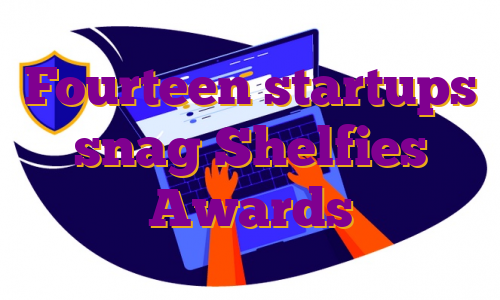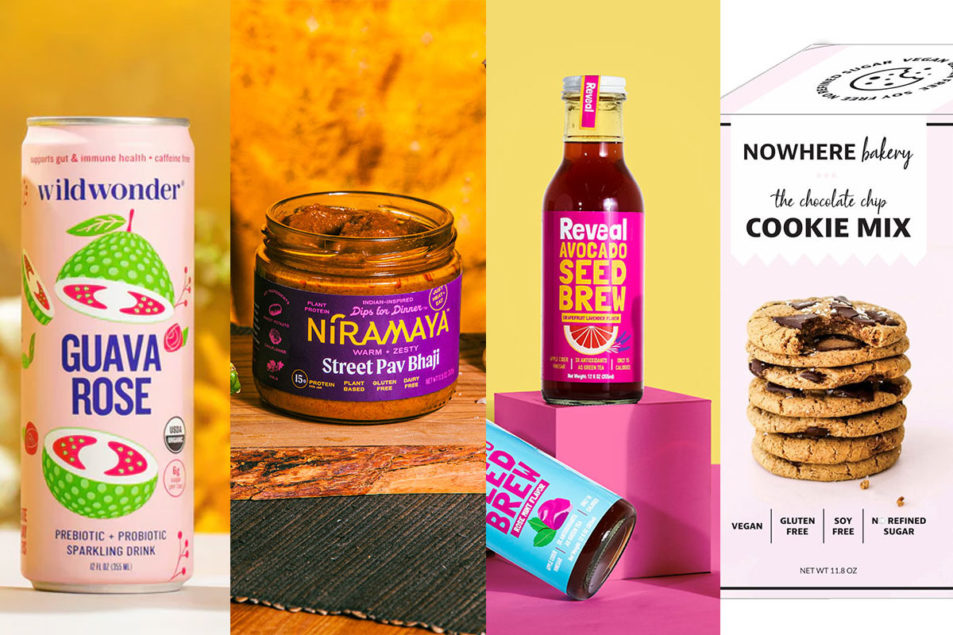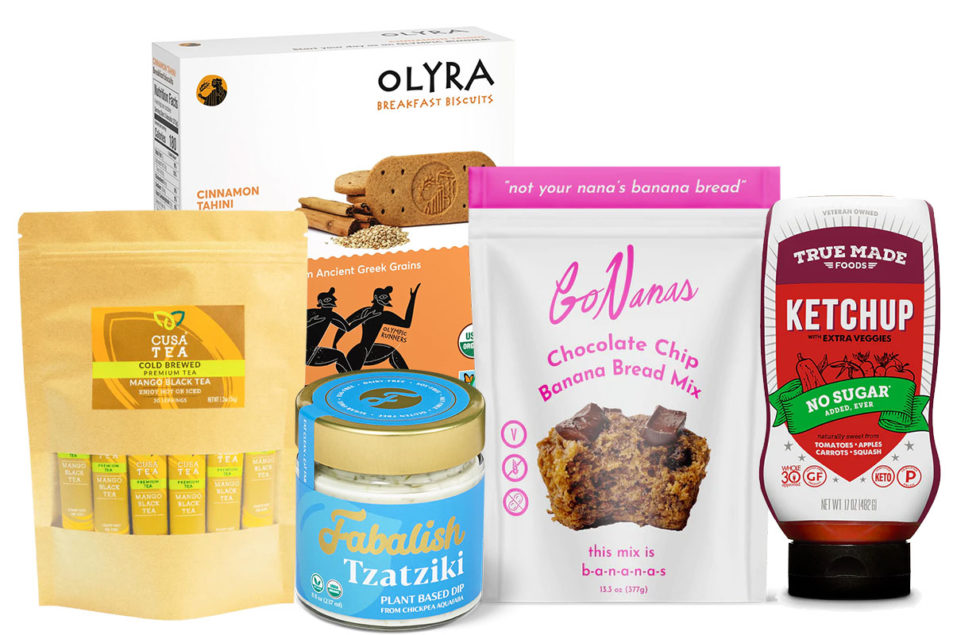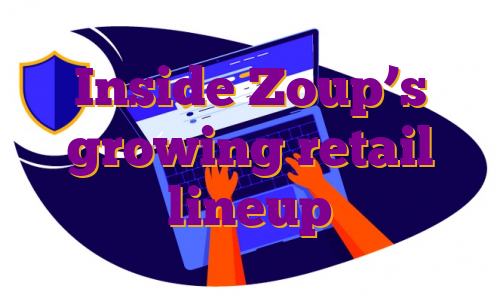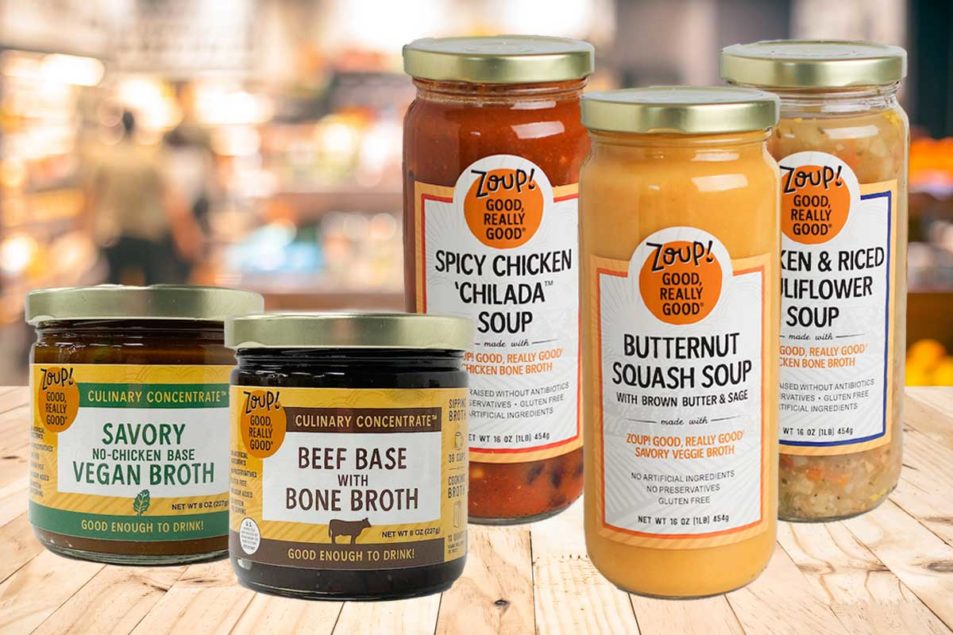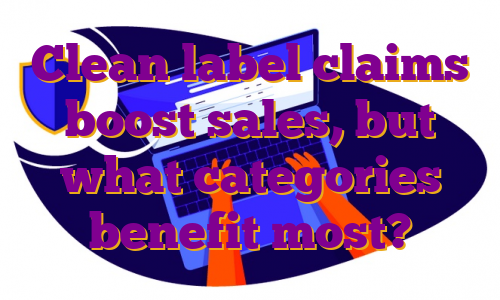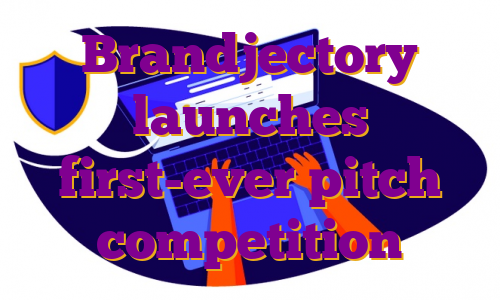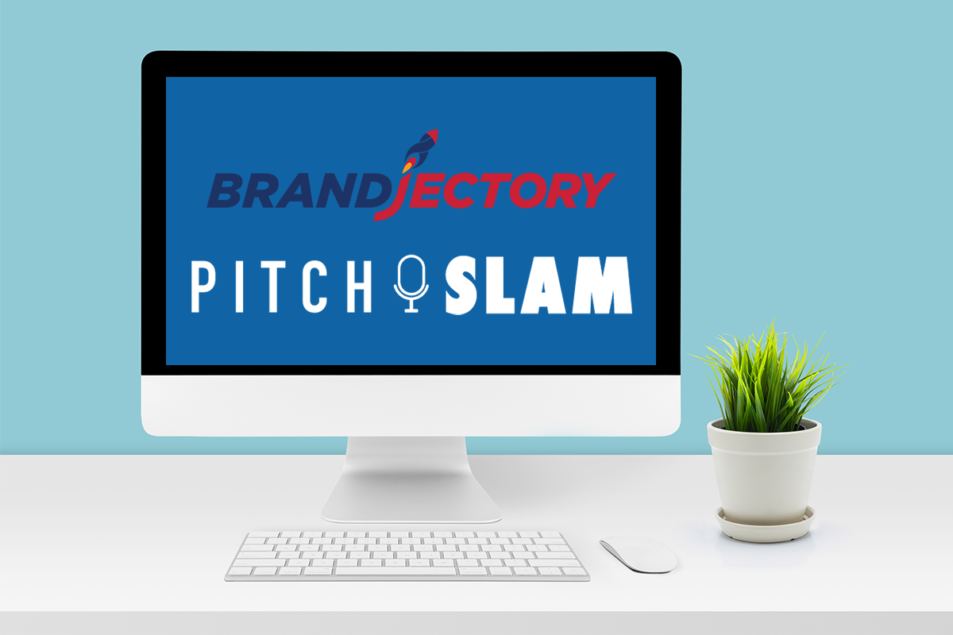SAN FRANCISCO — Fourteen emerging brands were recognized during the second annual Shelfies Awards ceremony, held Sept. 14 and hosted by Startup CPG, an organization dedicated to supporting early-stage entrepreneurs.More than 300 brands submitted over 600 food and beverage products. Forty-one finalists were selected across 13 categories. Products were judged on taste, innovation, mission and branding.Founded in 2019, Startup CPG provides free resources, services and networking opportunities, connecting founders and industry partners at live and virtual events and on digital platforms.“Since our inception, we have been keenly attentive to the unique challenges and opportunities that small emerging CPG brands face,” said Jenna Movsowitz, head of marketing and editor of “The Spotlight” at Startup CPG. “Among these challenges is the cost and labor barrier to nominating products for big-name awards. Yet the recognition of a best-in-class award could be the catalyst to turn an emerging product into a moonshot.”The winners of the 2022 Shelfies Awards are:Best international flavors: Niramaya Foods offers a collection of Indian-inspired, plant-based dips, including masala tomato sabji, super greens saag and street pav bhaji. The versatile dips may be paired with chips as a snack or served with rice and vegetables to create a balanced dinner, according to the company.Best snack: Fun-Gal Snacks is the maker of Popadelics, a brand of crunchy mushroom crisps with culinary-driven flavors, such as rosemary and salt and truffle Parmesan. A portion of sales supports health and wellness causes.Best breakfast food: For Good Granola is a chef-created, no-oat granola based on buckwheat groats, which is rich in vitamins, minerals and protein, plus nuts, seeds, dried fruits and puffed amaranth and sorghum. The startup supports organizations empowering children and adults with disabilities.Best kids’ product: Tiny Sprouts Foods is a children’s nutrition company committed to producing convenient, functional products with organic ingredients and no added sugar, preservatives or artificial flavors. The brand’s core product line features seeds such as chia, flax and hemp, plus probiotics and vitamin D, and may be sprinkled, mixed or baked into a variety of foods.Best baked good: Nowhere Bakery bakes premium cookies, brownies and bars formulated with almond flour, almond butter, organic coconut sugar, organic maple syrup and organic coconut oil. All products are plant-based and free from gluten and soy.Best alcohol beverage: G’s Hard Ginger Beer markets a range of organic, low-alcohol ginger beers that are fermented dry and contain no added sugars, sweeteners or artificial ingredients. The canned cocktails are available in flavors including ginger, lemon and orange; ginger, mint and lime; and ginger, passionfruit, orange and sea salt.Best condiment: AWSM Sauce is pioneering powdered mixes for classic condiments including ketchup, barbecue sauce and hot sauce as a sustainable alternative to conventional bottled options. The brand’s patent-pending ”powder-to-pour” technology helps reduce single-use plastic packaging waste.Best supplement: Two brands tied in the supplement category. Gwella recently launched its Mojo Microdose line of gummies made with a proprietary blend of functional mushrooms, herbs and roots to support energy, focus, clarity and mood. Hone offers a coffee alternative made with matcha and mushrooms to deliver benefits including immunity, energy and focus.Best sustainability-focused product: Hidden Gems has developed a proprietary process to create Reveal Avocado Seed Brew, a ready-to-drink beverage with three times more antioxidants than green tea, plus prebiotics for gut health. Flavors include grapefruit lavender, mango ginger and rose mint.Best plant-based product: Funky Mello’s plant-based marshmallow cremes are formulated with aquafaba, the starchy brine of cooked or canned chickpeas, plus sugar, tapioca syrup, vanilla flavoring and sea salt. The brand is carving out a new category in refrigerated desserts with a versatile fluff that spreads, swirls, melts and more.Best frozen product: Balkan Bites is a maker of frozen appetizers featuring Southeast European comfort foods, such as burek, a savory hand pie with a flaky, phyllo crust.Best beverage innovation: Wildwonder is a beverage brand focused on digestive health. Its low-sugar, sparkling tonics combine prebiotics and probiotics, with flavors ranging from guava rose to peach ginger to strawberry passion.Best branding: Uproot Teas is a direct-trade, premium tea startup, partnering with family farms in Hawaii, Vermont and Kyoto, Japan, to source sustainably grown whole leaf tea.Carl Starkey, co-founder of AWSM Sauce, said the award represents a “major validating step” for the brand.“To start a brand a year ago as two dads with a vision and now be a Shelfie Award winner is wild,” he said.Saphira Rasti, founder and head baker of Nowhere Bakery, added, “It is an honor to be acknowledged for the work we are doing. We have bragging rights.” .
Five emerging brands to participate in Brandjectory Pitch Slam
BATTLE CREEK, MICH. — Five emerging brands were selected to participate in a pitch competition produced by Brandjectory, an online platform dedicated to connecting early-stage consumer products entrepreneurs to investors.The virtual, two-hour event will be held on Sept. 14 and is free to attend. More than $95,000 in cash and services will be awarded, including a $20,000 cash prize for the winner. Co-hosting the event are Jessi Frietag, Startup CPG podcast host and independent consumer packaged goods operations consultant, and Wade Yenny, director of grocery, dairy and frozen at The Fresh Market. An afterparty will feature Jake Karls, co-founder of Mid-Day Squares.The inaugural Brandjectory Pitch Slam finalists are:Cusa Tea & Coffee, a brand of premium instant teas and coffees;Fabalish, a maker of snacks and dips formulated with chickpea ingredients;GoNanas, a producer of allergen-free banana bread mixes;Olyra, a brand of organic breakfast biscuits featuring ancient grains; andTrue Made Foods, a creator of no-sugar condiments sweetened with fruits and vegetables.“These are exceptional founders and business propositions,” said Tom Malengo, co-founder of Brandjectory. “We are excited to offer the first of many pitch slams for the industry. It’s a chance for us to showcase just five of the sensational brands on our platform.”Applications were open to Brandjectory premium subscribers. All applicants received feedback from investors, and the five finalists will receive investor coaching prior to the event, according to Brandjectory. A panel of six investors will determine a winner during the competition.Founded by three industry veterans, Brandjectory provides access to business education, networking opportunities and one-on-one coaching with investors and experts to startup founders seeking seed capital. Since its launch, Brandjectory has facilitated more than 1,400 connections between founders and investors. A year ago, Brandjectory added the premium membership service with benefits including invitations to all Brandjectory events and meet-ups; participation in coaching and mentoring with investors, buyers, brand marketers, product segment experts and more; a founder-only discussion forum; access to hundreds of articles from experts and partners; and brand exposure to a community of hundreds of investors.Startup founders may learn more or register for a premium membership at brandjectorynow.com. Attendees may register for the Brandjectory Pitch Slam at bit.ly/3QfVNFL. .
Inside Zoup’s growing retail lineup
FARMINGTON, HILLS, MICH. — A downward turn in soup sales inspired Zoup! Specialty Products to expand its retail lineup. Known for broths that are “good enough to drink,” the brand earlier this year debuted a line of shelf stable premium soups featuring five chef-inspired recipes.Kettle-cooked in small batches, the soups are free from gluten, artificial ingredients and preservatives and feature the brand’s homestyle broths as their base. Varieties include chicken and riced cauliflower, butternut squash with brown butter and sage, spicy chicken chilada, tomato bisque and garden vegetable.Sales of ready-to-eat soup fell 9% at retail in 2021, according to data from IRI, a Chicago-based market research firm. Negative perceptions of canned food were a factor, with many shoppers seeking options perceived as healthier, fresher and trendier.“We know soup, and we know the soup category shouldn’t be declining,” said Eric Ersher, founder of Zoup! Specialty Products and Zoup! Eatery. “We began operating on the thesis that people wanted high quality soups, but it simply wasn’t available; and people wanted to eat soup, but they didn’t want to eat foods out of cans.”The launch marked a “return to roots” for the brand, which got its start as a fast-casual restaurant chain. WOWorks, parent company of Saladworks and other foodservice brands, acquired Zoup! Eatery in May. Zoup! Specialty Products continues to operate as an independent business led by Mr. Ersher.It has been nine years since he brought the brand into retail. More than two decades of experience gave him a firm grasp of what makes a good broth, but none of the options available in grocery stores delivered the complex balance and taste served on Zoup! Eatery menus. Mr. Ersher leveraged the restaurant franchise business to fund the new venture, investing $500,000 and several years of research to develop a line of shelf stable broths worthy of the Zoup! moniker.The brand was the first-to-market in the premium broth category and the first broth to be packaged in recyclable glass jars, he said. “The category has evolved quite a bit since then,” Mr. Ersher said. “When we first came to market, we faced objections from buyers because we were in glass and because we were more expensive than other products out there. It seemed as if there was only a choice between cans or aseptic cartons, and 32-oz of bone broth only cost a few dollars.”A wider variety of products at a range of price points populate the broth aisle today. Mr. Ersher said Zoup! is positioned as the category’s “highly accessible premium line.”The company is gearing up to introduce its third line, a trio of clean label Culinary Concentrates, this fall. The “super clean label” broth concentrates come in beef bone broth, chicken bone broth and savory no-chicken vegan broth varieties.“This new product is intended to be a challenger to the existing broth concentrates, so we side-by-side in blind taste tests,” Mr. Ersher said. “It’s a little bit more expensive, but it goes a long way. A little 8-oz jar will produce gallons of broth.” .
Clean label claims boost sales, but what categories benefit most?
The clean label ingredient market is expected to grow to a value of US$42.5bn globally, according to forecasters at Market Research Future. That represents an impressive CAGR of over 17.5% through to the end of the decade.Product formulators are working on innovation and renovation that replaces artificial ingredients with those that are perceived as natural and minimally processed. Simplicity strikes a chord and shorter, understandable ingredient lists remain in vogue.This isn’t a new trend. The industry has been talking about the importance of cleaning up product labels for years. A recent study from Ingredion revealed that globally at least 50% of manufacturers report that their portfolios have already converted to clean label formulations. But manufacturers also said they have plans to increase clean label efforts in the next two-to-three years. So why do efforts to convert to clean label continue to gain steam?Consumers willing to pay more for clean labelsIngredion’s Global Clean Label Manufacturer research revealed that around 71% of consumers are willing to pay more for current brands that have been reformulated to make claims around the naturalness of their ingredients. Over 30% of consumers would be willing to pay a premium of more than 20%.While brands that convert to cleaner labels may be able to reap the rewards, those that do not risk being punished, with 82% of global consumers reporting a ‘high likelihood’ of switching from current brands not offering these claims to new brands that have these benefits. What’s more, 70% of them would not only switch but pay more to do so.This statement of intent is also borne out in what manufacturers are reporting on the ground, with 58% of food and beverage brands suggesting they have benefited from an increase in overall revenue thanks to conversion to clean label formulations.“Consumers are willing pay for additional benefits in current brands and new brands. Current brands are at risk of attrition and missed revenue opportunities if manufacturers do not convert their offerings and remain static,” Ingredion’s Daniel Haley, global Clean & Simple platform lead, told FoodNavigator. “These results make it easier to understand why over 50% over respondents said offering clean label foods or beverages is a priority within their company’s overall business strategy.” What motivates consumers to pay more for clean labels? Caution and health / Pic: GettyImages-Iam AnupongClean label resonates in categories with health halo and risk perceptionMarket Research Future analysts point out that the COVID-19 pandemic has had a ‘massive impact’ on the worldwide market for clean label ingredients. The researchers suggest clean label conversion is underpinned by two consumer drivers: caution about any negative health impact of food ingredients and demand for healthy options.“The buying habits of the consumers have changed notably, with them being more cautious about the food products that they purchase. Healthy eating habits have become quite prevalent among consumers…. Consumers are increasingly focusing on clean labels for out-of-home and at-home purchases; therefore, enhancing the application scope of clean label ingredients in a variety of food products,” they wrote in a research report.Perceived benefits around wellness are the primary driver for clean label demand, Ingredion’s Haley believes. “Whilst today’s consumers may also be looking for new, targeted health benefits or products supporting particular elements of sustainability, their foundational expectation is that products are made with ingredients they recognise, accept and strongly associate with naturality and minimal processing. Clean label is their first priority,” he stressed.So, what categories can benefit most from clean label renovation?When it comes to willingness to pay more and switch to brands with clean label credentials, Ingredion found all categories benefit – but some more so than others. Segments that are already associated with a health-halo and products aimed at children stand to gain most from clean label claims, while fixtures viewed as less healthy or more indulgent resonated less, Ingredion found.“The categories where the largest percentage of consumers will pay 20-30% more for products include baby food, meat and meat alternatives, plant-based yogurts, and plant-based milks. A lower percentage of consumers would pay such a premium in carbonated soft drinks and energy drinks. We tend to see lower desire in categories that are considered more of an indulgence or not usually considered a vehicle for health,” Haley detailed.
What motivates consumers to pay more for clean labels? Caution and health / Pic: GettyImages-Iam AnupongClean label resonates in categories with health halo and risk perceptionMarket Research Future analysts point out that the COVID-19 pandemic has had a ‘massive impact’ on the worldwide market for clean label ingredients. The researchers suggest clean label conversion is underpinned by two consumer drivers: caution about any negative health impact of food ingredients and demand for healthy options.“The buying habits of the consumers have changed notably, with them being more cautious about the food products that they purchase. Healthy eating habits have become quite prevalent among consumers…. Consumers are increasingly focusing on clean labels for out-of-home and at-home purchases; therefore, enhancing the application scope of clean label ingredients in a variety of food products,” they wrote in a research report.Perceived benefits around wellness are the primary driver for clean label demand, Ingredion’s Haley believes. “Whilst today’s consumers may also be looking for new, targeted health benefits or products supporting particular elements of sustainability, their foundational expectation is that products are made with ingredients they recognise, accept and strongly associate with naturality and minimal processing. Clean label is their first priority,” he stressed.So, what categories can benefit most from clean label renovation?When it comes to willingness to pay more and switch to brands with clean label credentials, Ingredion found all categories benefit – but some more so than others. Segments that are already associated with a health-halo and products aimed at children stand to gain most from clean label claims, while fixtures viewed as less healthy or more indulgent resonated less, Ingredion found.“The categories where the largest percentage of consumers will pay 20-30% more for products include baby food, meat and meat alternatives, plant-based yogurts, and plant-based milks. A lower percentage of consumers would pay such a premium in carbonated soft drinks and energy drinks. We tend to see lower desire in categories that are considered more of an indulgence or not usually considered a vehicle for health,” Haley detailed.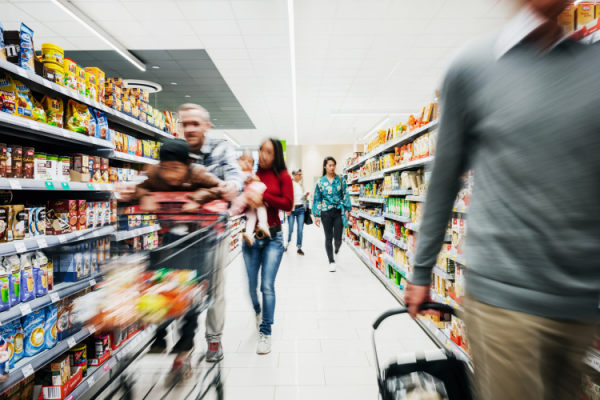 What categories will consumers pay for clean labels in? / Pic: GettyImages-Tom WernerThe baby food category stands as an example of clean label expectations being enhanced by consumer caution. High demand for clean labels in baby food stems from parents’ desire to ensure their babies get the best nutritional start and, significantly, to protect them from ingredients that could be considered harmful.The Clean Label Project, a US advocacy group, is pushing for greater scrutiny of what goes into baby food and recently launched a certification scheme in response to the presence of contaminants like heavy metals that have been detected in the segment.“The First 1,000 Day standard shifts the narrative when it comes to ‘baby food’ safety. The standard is applicable to not just traditional baby foods but all foods and ingredients marketed towards pregnant women, infants, children, and lactating mothers,” explained Dr. Stephanie Canale, family medicine physician and member of the Clean Label Project Technical Advisory Committee.“There is an inextricable link between the health of the mother and her child. Infants and children have unique nutritional needs and unique vulnerabilities. Parents, brands, and governments alike should take every possible precaution to assure the health and safety of this most vulnerable population. The best way to decrease exposure to any given contaminant is to strive for variety in the foods given to babies and toddlers.”Plant-based products, meanwhile, are often perceived as healthier alternatives. But formulators in the space face a particular challenge around mimicking the organoleptic properties of animal-based products while meeting clean label expectations.
What categories will consumers pay for clean labels in? / Pic: GettyImages-Tom WernerThe baby food category stands as an example of clean label expectations being enhanced by consumer caution. High demand for clean labels in baby food stems from parents’ desire to ensure their babies get the best nutritional start and, significantly, to protect them from ingredients that could be considered harmful.The Clean Label Project, a US advocacy group, is pushing for greater scrutiny of what goes into baby food and recently launched a certification scheme in response to the presence of contaminants like heavy metals that have been detected in the segment.“The First 1,000 Day standard shifts the narrative when it comes to ‘baby food’ safety. The standard is applicable to not just traditional baby foods but all foods and ingredients marketed towards pregnant women, infants, children, and lactating mothers,” explained Dr. Stephanie Canale, family medicine physician and member of the Clean Label Project Technical Advisory Committee.“There is an inextricable link between the health of the mother and her child. Infants and children have unique nutritional needs and unique vulnerabilities. Parents, brands, and governments alike should take every possible precaution to assure the health and safety of this most vulnerable population. The best way to decrease exposure to any given contaminant is to strive for variety in the foods given to babies and toddlers.”Plant-based products, meanwhile, are often perceived as healthier alternatives. But formulators in the space face a particular challenge around mimicking the organoleptic properties of animal-based products while meeting clean label expectations.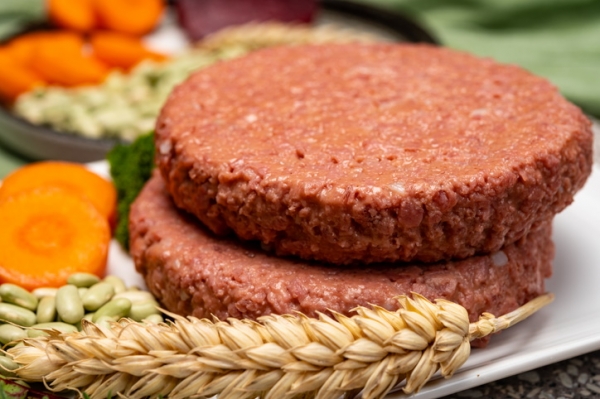 It can be difficult to produce a meaty mouthfeel while keeping labels clean / Pic: GettyImages-BarmaliniAccording to European organic ingredient supplier AGRANA Group this difficulty is clearly evident in vegan meat substitutes, where formulations that are free of additives – particularly artificial emulsifiers such as methyl cellulose – can be difficult to deliver while producing a meat-like juicy mouthfeel.At the AGRANA Research and Innovation Centre in Austria, the company is exploring potential solutions, creating vegan burger patties using ingredients like pre-gelatinized maize starch, potato fibres and vital wheat gluten, which – it claimed – ‘completely replace’ the need for methyl cellulose. “As a processor of plant-based, agricultural raw materials, we aim to show our customers how we can address the demand for vegan and vegetarian nutrition with new sustainable concepts,” reflected CEO Markus Mühleisen.Clean label and sugar reductionIf product categories that are already perceived as healthy benefit from clean label innovation, what about product attributes linked to health?Reduced or low sugar claims probably stand at the forefront of this, with research showing sugar content is a key influencer for the majority of grocery shoppers. However, sugar reduction has a nuanced relationship to clean label demand – sugar is, after all, a natural ingredient.A recent study sponsored by Cargill suggests that while consumers frequently check the amount of sugar a product contains before they purchase, they are less likely to scrutinise the specific sweetener used. Does this mean reduced-sugar products are exempt from the need to deliver clean labels? Not exactly, Cargill stressed.
It can be difficult to produce a meaty mouthfeel while keeping labels clean / Pic: GettyImages-BarmaliniAccording to European organic ingredient supplier AGRANA Group this difficulty is clearly evident in vegan meat substitutes, where formulations that are free of additives – particularly artificial emulsifiers such as methyl cellulose – can be difficult to deliver while producing a meat-like juicy mouthfeel.At the AGRANA Research and Innovation Centre in Austria, the company is exploring potential solutions, creating vegan burger patties using ingredients like pre-gelatinized maize starch, potato fibres and vital wheat gluten, which – it claimed – ‘completely replace’ the need for methyl cellulose. “As a processor of plant-based, agricultural raw materials, we aim to show our customers how we can address the demand for vegan and vegetarian nutrition with new sustainable concepts,” reflected CEO Markus Mühleisen.Clean label and sugar reductionIf product categories that are already perceived as healthy benefit from clean label innovation, what about product attributes linked to health?Reduced or low sugar claims probably stand at the forefront of this, with research showing sugar content is a key influencer for the majority of grocery shoppers. However, sugar reduction has a nuanced relationship to clean label demand – sugar is, after all, a natural ingredient.A recent study sponsored by Cargill suggests that while consumers frequently check the amount of sugar a product contains before they purchase, they are less likely to scrutinise the specific sweetener used. Does this mean reduced-sugar products are exempt from the need to deliver clean labels? Not exactly, Cargill stressed. Do shoppers want clean-label reformulation to cut sugar? / Pic: GettyImages-VladamirFLloydThe company’s 2021 survey of US shoppers also found evidence that sweetener claims influence purchases, too. Those that fared best in the Cargill study typically implied ‘natural’ or ‘no artificial’, including ‘naturally sweetened’ or ‘made with a natural sweetener’.Carla Saunders, senior marketing manager for Cargill’s high intensity sweetener lines, believes that clean label claims in reduced sugar products became more important for consumers in the wake of the pandemic.“The popularity of these types of claims – especially sugar-reduction – have been amplified by COVID-19, building on the ‘clean eating’ trends we’ve been tracking for several years,” she explained.“Products with these on-pack labels are often perceived as less processed and more healthful. That aligns with the demands of today’s more health-conscious consumers, who are seeking to manage their health and wellness goals through food and beverage choices.” .
Do shoppers want clean-label reformulation to cut sugar? / Pic: GettyImages-VladamirFLloydThe company’s 2021 survey of US shoppers also found evidence that sweetener claims influence purchases, too. Those that fared best in the Cargill study typically implied ‘natural’ or ‘no artificial’, including ‘naturally sweetened’ or ‘made with a natural sweetener’.Carla Saunders, senior marketing manager for Cargill’s high intensity sweetener lines, believes that clean label claims in reduced sugar products became more important for consumers in the wake of the pandemic.“The popularity of these types of claims – especially sugar-reduction – have been amplified by COVID-19, building on the ‘clean eating’ trends we’ve been tracking for several years,” she explained.“Products with these on-pack labels are often perceived as less processed and more healthful. That aligns with the demands of today’s more health-conscious consumers, who are seeking to manage their health and wellness goals through food and beverage choices.” .
Brandjectory launches first-ever pitch competition
BATTLE CREEK, MICH. — Brandjectory, an online platform dedicated to connecting early-stage consumer products entrepreneurs to investors, is hosting an inaugural pitch competition. The virtual, two-hour event will be held on Sept. 14 and is free to attend.Founded by three industry veterans, Brandjectory provides access to business education, networking opportunities and one-on-one coaching with investors and experts to startup founders seeking seed capital. Since its launch, Brandjectory has facilitated more than 1,300 connections between founders and investors.The pitch slam is open to Brandjectory premium subscribers, and applications will be accepted through Aug. 15 at brandjectory.eb-sites.com/PitchSlam2022. All applicants will receive feedback from investors. Five finalists will receive investor coaching prior to the event, and the winner will be awarded a cash prize, plus additional prizes.“Everything we do at Brandjectory is designed to help CPG founders navigate the fundraising process and become comfortable communicating and working with investors,” said Michael Movitz, co-founder of Brandjectory. “While we provide a great deal of business education, our ultimate goal is to help founders clearly understand what investors are thinking, what they are looking for, and what they want to hear to know that a brand founder has built an investor-ready business. That is why we want to make sure all applicants get investor feedback, even if they are not a finalist.”Additional perks of a premium membership include invitations to all Brandjectory events and meet-ups; participation in coaching and mentoring with investors, buyers, brand marketers, product segment experts and more; a founder-only discussion forum; access to hundreds of articles from experts and partners; and brand exposure to a community of more than 500 investors.“The Pitch Slam is just one more opportunity to provide value to our Premium members,” said Susan Bryenton, co-founder of Brandjectory. “We are constantly adding features, speakers, events, new discussion topics and many more opportunities for CPG founders to learn and interact with CPG investors and industry experts. We are pleased to know the process is working. Not only are founders and investors connecting and continuing the conversation, we are learning of funding that is beginning to occur.”Startup founders may learn more or register for a premium membership at brandjectorynow.com. .

